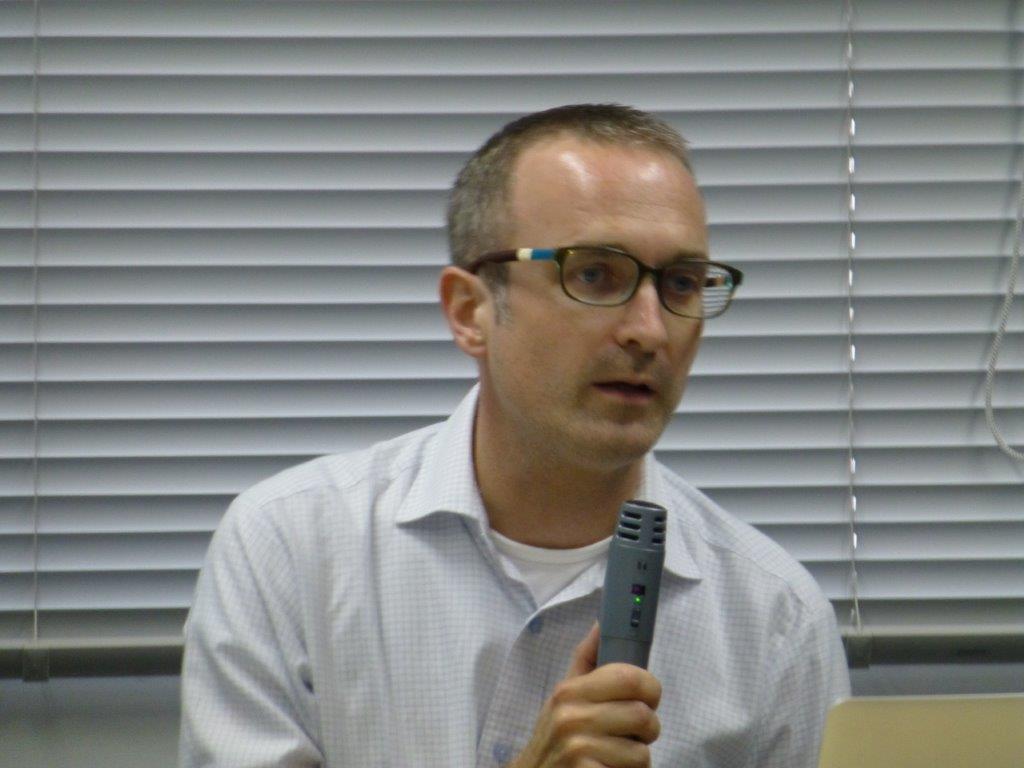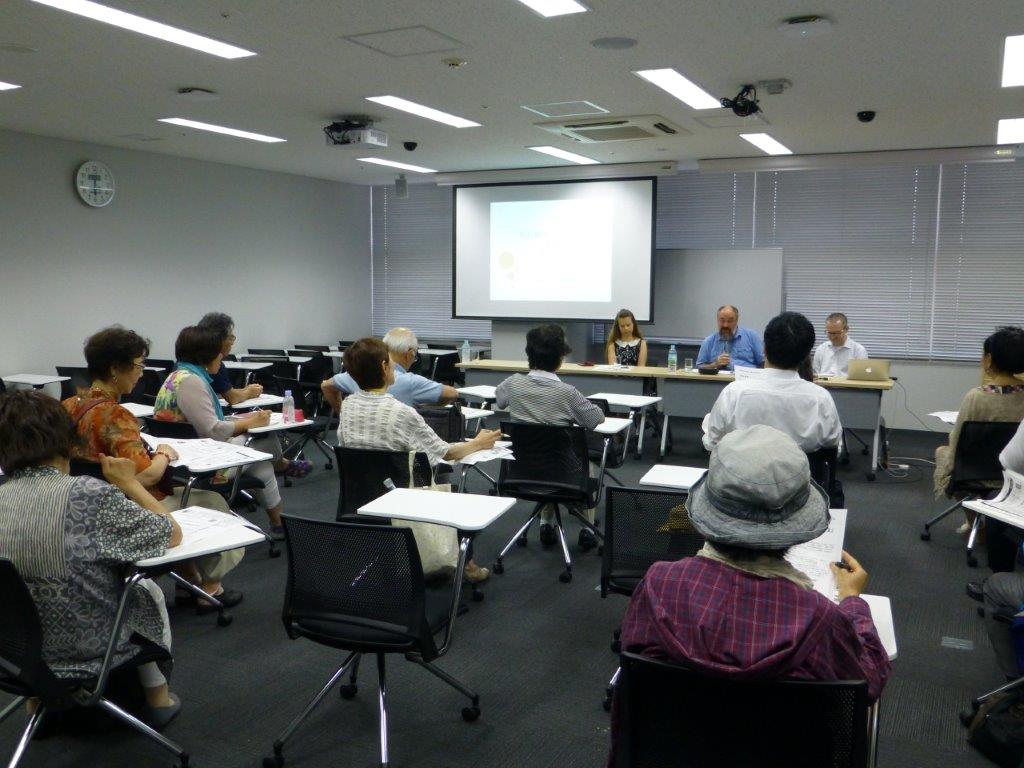2016年07月14日 HPI研究フォーラム
講師 ジョン・ミッチェル(明治学院大学国際平和研究所研究員)
広島平和研究所では、下記のとおりHPI研究フォーラムを開催しました。


1. テーマ
「枯れ葉剤―沖縄と米軍基地汚染」
2. 日時
2016年7月14日(木) 18:00~20:00
3. 場所
広島市立大学サテライトキャンパス セミナールーム2
広島市中区大手町4-1-1 大手町平和ビル9階 (市役所本庁舎向い)
4. 講演の概要
2014年、沖縄の元米軍基地から発掘された数十のドラム缶から、米軍がベトナム戦時に使用し、東南アジアにおいて数百万人を病に陥れた枯れ葉剤「エージェント・オレンジ」の成分が検出された。その発見により、ペンタゴンが沖縄に備蓄してきた神経ガスやマスタードガス等の毒物リストに、「エージェント・オレンジ」が加わった。これらの化学物質は、島の土壌、海や空を汚染し、米国人と沖縄住民の両方を病に冒している。しかし、日米地位協定により、米国は汚染された土地を浄化するための費用負担に責任をもたなくてよいばかりか、日本政府が汚染を解明しようと基地に近づくことを許可する義務ももたない。本フォーラムでは、沖縄米軍基地汚染の残したもの、米軍人や沖縄住民への影響、さらに将来的にその影響を緩和するためには何が必要とされるのかを考察する。
5. 講師の略歴
1974年ウェールズ生まれ。沖縄の米軍基地問題や環境汚染などを取材。米退役兵とのネットワークや米国の情報公開制度を活用しスクープを連発。著書に「追跡・沖縄の枯れ葉剤 埋もれた戦争犯罪を掘り起こす」。2015年、日本外国特派員協会「報道功労賞」受賞。琉球朝日放送と制作した「枯れ葉剤を浴びた島 ベトナムと沖縄・元米軍人の証言」(2012年)は、日本民間放送連盟優秀賞。現在、明治学院大学国際平和研究所で研究員を務める。
HPI Research Forum on July 14, 2016
〝Agent Orange, military contamination and Okinawa″
By Jon Mitchell, visiting researcher at the International Peace Research Institute of Meiji Gakuin University
The Hiroshima Peace Institute held an HPI Research Forum as follows:
1. Topic
"Agent Orange, military contamination and Okinawa"
2. Date and Time
July 14, 2016 (Thu.) 18:00-20:00
3. Venue
Seminar Room 2, Satellite Campus, Hiroshima City University
4-1-1 Otemachi, Nakaku, Hiroshima
9F Otemachi Heiwa Building
4. Abstract of the Forum
In 2014, tests on dozens of barrels unearthed from former military land on Okinawa revealed traces of the tell-tale components of Agent Orange, the Vietnam War defoliant which has sickened millions in Southeast Asia. Although, the Pentagon has long denied Agent Orange was ever present on Okinawa, Japanese and international experts contend the barrels provide undeniable proof that defoliants had been stored there.
The discovery has added Agent Orange to a long list of poisons stockpiled by the Pentagon on Okinawa including nerve gas, mustard gas, napalm, lead, PCBs, arsenic and depleted uranium. These chemicals have contaminated the island’s land, sea, air and sickened both Americans and Okinawans. For example, more than 250 U.S. veterans claim they are ill from exposure to Agent Orange while the Japanese government has recognized that dozens of former bases workers have been sickened by asbestos on Okinawan bases.
Under the current Status of Armed Forces Agreement, the U.S. is not liable for the clean-up costs for land it has contaminated - nor is it bound to allow Japanese officials access to its bases to ascertain pollution. Such a stance has angered local residents and forced Tokyo and Washington to embark on talks to amend SOFA. However in the years to come, as more land is returned to civilian use, the problem looks set to become even more serious.
This one-hour lecture will explore the legacy of military contamination on Okinawa, its impact on U.S. service members and Okinawa residents and what needs to be done to mitigate its effects in the future.
5. Profile of Jon Mitchell
Born in Wales in 1974. He’s been collecting data on the U.S. military base problem in Okinawa and environmental pollution. He is the author of “Tsuiseki: Okinawa no Karehazai (Chasing Agent Orange on Okinawa),” Koubunken, 2014. In 2015, he was awarded the Foreign Correspondents’ Club of Japan's Freedom of the Press Lifetime Achievement Award for his reporting about human rights issues on Okinawa. "Defoliated Island", a TV documentary about his investigation into the usage of Agent Orange in Japan, is winner of a 2012 award for excellence from the Association of Commercial Broadcasters. He is a visiting researcher at the International Peace Research Institute of Meiji Gakuin University.
